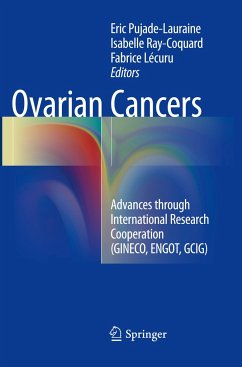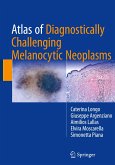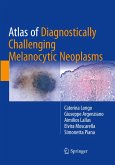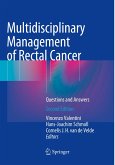Ovarian Cancers
Advances through International Research Cooperation (GINECO, ENGOT, GCIG)
Herausgegeben:Pujade-Lauraine, Eric; Ray-Coquard, Isabelle; Lécuru, Fabrice
Ovarian Cancers
Advances through International Research Cooperation (GINECO, ENGOT, GCIG)
Herausgegeben:Pujade-Lauraine, Eric; Ray-Coquard, Isabelle; Lécuru, Fabrice
- Broschiertes Buch
- Merkliste
- Auf die Merkliste
- Bewerten Bewerten
- Teilen
- Produkt teilen
- Produkterinnerung
- Produkterinnerung
This book provides an overview of the latestdevelopments in the concepts and management of ovarian cancer. The new datapresented throughout opens the way to radically different therapeuticapproaches. Surgery remains the core of ovarian cancer treatment, but itsultimate goal and the standard surgical procedure have evolved, giving rise tothe question of how to label expert centers for debulking surgery. Neo-adjuvantchemotherapy is becoming more popular and is also a new field for testing noveldrug combinations.
Over recent years, ovarian cancer managementhas embraced molecular biology. It is…mehr
Andere Kunden interessierten sich auch für
![Tumor Angiogenesis Tumor Angiogenesis]() Tumor Angiogenesis164,99 €
Tumor Angiogenesis164,99 €![Controversies in the Management of Gynecological Cancers Controversies in the Management of Gynecological Cancers]() Controversies in the Management of Gynecological Cancers113,99 €
Controversies in the Management of Gynecological Cancers113,99 €![Atlas of Diagnostically Challenging Melanocytic Neoplasms Atlas of Diagnostically Challenging Melanocytic Neoplasms]() Caterina LongoAtlas of Diagnostically Challenging Melanocytic Neoplasms134,99 €
Caterina LongoAtlas of Diagnostically Challenging Melanocytic Neoplasms134,99 €![Diagnosis and Management of Breast Tumors Diagnosis and Management of Breast Tumors]() Diagnosis and Management of Breast Tumors82,99 €
Diagnosis and Management of Breast Tumors82,99 €![Malignant Brain Tumors Malignant Brain Tumors]() Malignant Brain Tumors90,99 €
Malignant Brain Tumors90,99 €![Atlas of Diagnostically Challenging Melanocytic Neoplasms Atlas of Diagnostically Challenging Melanocytic Neoplasms]() Caterina LongoAtlas of Diagnostically Challenging Melanocytic Neoplasms97,99 €
Caterina LongoAtlas of Diagnostically Challenging Melanocytic Neoplasms97,99 €![Multidisciplinary Management of Rectal Cancer Multidisciplinary Management of Rectal Cancer]() Multidisciplinary Management of Rectal Cancer98,99 €
Multidisciplinary Management of Rectal Cancer98,99 €-
-
-
This book provides an overview of the latestdevelopments in the concepts and management of ovarian cancer. The new datapresented throughout opens the way to radically different therapeuticapproaches. Surgery remains the core of ovarian cancer treatment, but itsultimate goal and the standard surgical procedure have evolved, giving rise tothe question of how to label expert centers for debulking surgery. Neo-adjuvantchemotherapy is becoming more popular and is also a new field for testing noveldrug combinations.
Over recent years, ovarian cancer managementhas embraced molecular biology. It is now more correct to talk about cancers ofthe ovary rather than ovarian cancer, since it is not a unique disease butseveral entities with different molecular drivers. The significant advances indrugs targeting the microenvironment or the tumor cell DNA repair mechanismsare presented in detail together with exciting future perspectives.
All these advances would not have been possiblewithout collaborative groups such as the GINECO group in France and theirintegration in wider clinical research networks at the European (ENGOT) andinternational (GCIG) level.
Over recent years, ovarian cancer managementhas embraced molecular biology. It is now more correct to talk about cancers ofthe ovary rather than ovarian cancer, since it is not a unique disease butseveral entities with different molecular drivers. The significant advances indrugs targeting the microenvironment or the tumor cell DNA repair mechanismsare presented in detail together with exciting future perspectives.
All these advances would not have been possiblewithout collaborative groups such as the GINECO group in France and theirintegration in wider clinical research networks at the European (ENGOT) andinternational (GCIG) level.
Produktdetails
- Produktdetails
- Verlag: Springer / Springer International Publishing / Springer, Berlin
- Artikelnr. des Verlages: 978-3-319-81199-4
- Softcover reprint of the original 1st ed. 2017
- Seitenzahl: 296
- Erscheinungstermin: 23. Juni 2018
- Englisch
- Abmessung: 235mm x 155mm x 16mm
- Gewicht: 506g
- ISBN-13: 9783319811994
- ISBN-10: 3319811991
- Artikelnr.: 53572747
- Herstellerkennzeichnung Die Herstellerinformationen sind derzeit nicht verfügbar.
- Verlag: Springer / Springer International Publishing / Springer, Berlin
- Artikelnr. des Verlages: 978-3-319-81199-4
- Softcover reprint of the original 1st ed. 2017
- Seitenzahl: 296
- Erscheinungstermin: 23. Juni 2018
- Englisch
- Abmessung: 235mm x 155mm x 16mm
- Gewicht: 506g
- ISBN-13: 9783319811994
- ISBN-10: 3319811991
- Artikelnr.: 53572747
- Herstellerkennzeichnung Die Herstellerinformationen sind derzeit nicht verfügbar.
Eric Pujade-Lauraine, MD, PhD, is founder of the French GINECO Group, which is devoted to clinical research in gynecologic cancer. He is head of the Women Cancer and Clinical research Department at Hôpitaux Universitaires Paris Centre, site Hôtel-Dieu, AP-HP in Paris, France and co-chair of the French gynecologic rare tumor network (TMRG)While receiving his medical degree from the University of Paris VI, Professor Pujade-Lauraine later obtained his PhD degree from the University of Paris VI. He is now professor of Medical Oncology at University Paris Descartes. As well as serving on several advisory boards, Prof Pujade-Lauraine is member of the American Society of Clinical Oncology (ASCO), the European Society for Medical Oncology (ESMO) and the European Society of Gynaecologic Oncology (ESGO). He is also Member of the Executive Board of the European Network of Gynecological Trials (ENGOT) and of the international Gynecologic Cancer Intergroup (GCIG) and is past-chair of this institution. He is co-founder and past Chair of the Gynecologic Cancer Academy (GCA) and of the ENGOT Translational group. He was until 2014 member of the NCI Gynecologic Cancer Steering Committee. Prof Pujade-Lauraine has co-authored more than 160 peer-reviewed articles Isabelle Ray-Coquard, MD, PhD, is medical oncologist in the Medical Oncology Department and the Institute for Clinical Science at the Centre Leon Berard, the regional Cancer Center in Lyon, France. Prof. Ray-Coquard obtained her medical degree in 1997 specializing in oncology. In 2003 she received her PhD from the Université Claude Bernard for her research on the factors that determine medical practices in oncology. Prof Ray-Coquard also received Master's degrees in medical economy in 1996 and in statistics in1995. Since 2005, Prof Ray-Coquard has served as Chairman of the gynaecologic group for clinical trials of the French National Cancer Institute (INCA) and she is currently the Network Director of the national observatory dedicated to rare ovarian cancer (www.ovaire-rare.org), a network funded by the INCA commission and dedicated to the management of all rare ovarian cancer. At the Groupe d'investigateurs national evaluation des cancers de l'ovaire (GINECO), Pr. Ray-Coquard has been active in the translational research advisory committee, the scientific committee, the rare tumors committee, and as a chairman of endometrial cancer subgroup. She is the current Past-President of GINECO. Since 2012, Prof Ray-Coquard is the chairman (with Jonathan Ledermann, UK as co chair) of the rare cancer working group from GCIG (gynaecological cancer intergroup) dedicated to clinical trials in the field of all gynaecological cancers. Prof Ray-Coquard is an active member of a number of professional groups, including the American Society of Clinical Oncology, the American Association for Cancer Research, the Connective Tissue Oncology Society, the French Society of Cancer, the European Association of Cancer Research, the EORTC organisation and the European Society of Medical Oncology. Prof Ray-Coquard has co-authored more than 160 peer-reviewed articles and over 200 abstracts and book chapters with an H factor of 36. Fabrice Lécuru, MD, PhD is a gynaecologic surgeon in the Surgical Oncology Department for Breast and Gynaecology in the Georges Pompidou European Hospital and Paris V - René Descartes University. He obtained a medical degree in Lille (1991), a PhD in Paris V University (1997) and a full Professorship in Paris V University (1998). He is head of department since 2007. His fields of interest and expertise are advanced laparoscopy for gynaecologic malignancies, robotic surgery and radical surgery for advanced ovarian cancers. Fabrice Lécuru is involved in teaching (Co-chairman of European Inter-University Diploma of Gynaecologic Oncology with Pr E Pujade Lauraine, Pr F Golfier and Pr F Kridelka).He developed experimental studies to assess the impact of pneumoperitoneum on tumor cell diffusion and migration. He is also involved in clinical research as PI (clinical trials on sentinel node biopsy in cervical cancer and preservation of lower limb lymphatic drainage) or associated investigator in more than 15 trials. He belongs to the Groupe d'investigateurs national d'evaluation des cancers de l'ovaire (GINECO) and is head of the ' surgical sub-group ' within the GINECO. Prof Fabrice Lécuru is an active member of scientific societies, including the American Society of Clinical Oncology, the Society of Gynecologic Oncology, the European Society of Gynaecologic Oncology, the International Gynecologic Cancer Society and of the EORTC organization. Prof Fabrice Lécuru has co-authored more than 110 peer-reviewed articles in international journals
Ovarian cancer management.- Clinical research in Europe dedicated to ovarian cancers.- Oncogenetics.- Debulking surgery: Interval debulking surgery vs primary: pro and con. How to evaluate quality.- How to evaluate tumor burden before therapeutic decision.- Value of lymphadenectomy.- HYPEC: what is the evidence?.- Onco-fertility applied to ovarian cancers.- First-line systemic therapy (chemo/antiangiogenics).- Elderly.- Treatment at relapse (surgery & systemic treatments).- How to evaluate QoL.- The future in ovarian cancers & place of the new immunotherapies in ovarian cancers.- Particular types of ovarian cancers.- High grade serous carcinoma & BRCA mutation anti-PARP.- Borderline and low grade carcinoma.- Clear Cell carcinoma.- Endometrioid carcinoma.- Mucinous carcinoma.- Carcinosarcoma.- Germ cell tumors.- Sex cord tumors.- Very rare ovarian malignant tumors including small cell carcinoma. Ovarian cancer management.- Clinical research in Europededicated to ovarian cancers.- Oncogenetics.- Debulking surgery: Interval debulking surgery vs primary: pro and con. How to evaluate quality.- How to evaluate tumor burden before therapeutic decision.- Value of lymphadenectomy.- HYPEC: what is the evidence?.- Onco-fertility applied to ovarian cancers.- First-line systemic therapy (chemo/antiangiogenics).- Elderly.- Treatment at relapse (surgery & systemic treatments).- How to evaluate QoL.- The future in ovarian cancers & place of the new immunotherapies in ovarian cancers.- Particular types of ovarian cancers.- High grade serous carcinoma & BRCA mutation anti-PARP.- Borderline and low grade carcinoma.- Clear Cell carcinoma.- Endometrioid carcinoma.- Mucinous carcinoma.- Carcinosarcoma.- Germ cell tumors.- Sex cord tumors.- Very rare ovarian malignant tumors including small cell carcinoma.
Ovarian cancer management.- Clinical research in Europe dedicated to ovarian cancers.- Oncogenetics.- Debulking surgery: Interval debulking surgery vs primary: pro and con. How to evaluate quality.- How to evaluate tumor burden before therapeutic decision.- Value of lymphadenectomy.- HYPEC: what is the evidence?.- Onco-fertility applied to ovarian cancers.- First-line systemic therapy (chemo/antiangiogenics).- Elderly.- Treatment at relapse (surgery & systemic treatments).- How to evaluate QoL.- The future in ovarian cancers & place of the new immunotherapies in ovarian cancers.- Particular types of ovarian cancers.- High grade serous carcinoma & BRCA mutation anti-PARP.- Borderline and low grade carcinoma.- Clear Cell carcinoma.- Endometrioid carcinoma.- Mucinous carcinoma.- Carcinosarcoma.- Germ cell tumors.- Sex cord tumors.- Very rare ovarian malignant tumors including small cell carcinoma. Ovarian cancer management.- Clinical research in Europededicated to ovarian cancers.- Oncogenetics.- Debulking surgery: Interval debulking surgery vs primary: pro and con. How to evaluate quality.- How to evaluate tumor burden before therapeutic decision.- Value of lymphadenectomy.- HYPEC: what is the evidence?.- Onco-fertility applied to ovarian cancers.- First-line systemic therapy (chemo/antiangiogenics).- Elderly.- Treatment at relapse (surgery & systemic treatments).- How to evaluate QoL.- The future in ovarian cancers & place of the new immunotherapies in ovarian cancers.- Particular types of ovarian cancers.- High grade serous carcinoma & BRCA mutation anti-PARP.- Borderline and low grade carcinoma.- Clear Cell carcinoma.- Endometrioid carcinoma.- Mucinous carcinoma.- Carcinosarcoma.- Germ cell tumors.- Sex cord tumors.- Very rare ovarian malignant tumors including small cell carcinoma.








